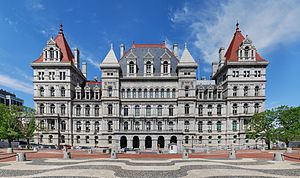The FCC reported that emergency agencies in Louisiana, Mississippi, and Alabama were able to stitch together a 700 MHz radio network to connect first responders and government workers. This was an ad hoc telecom effort to, in effect, route callers into the right conference group.
The agencies in these Gulf states created a workable, but still somewhat primitive (compared to what’s coming), radio trunking system to share available frequencies more efficiently and allocate them into separate radio talk groups.
A better solution is in the works.
Continue reading



